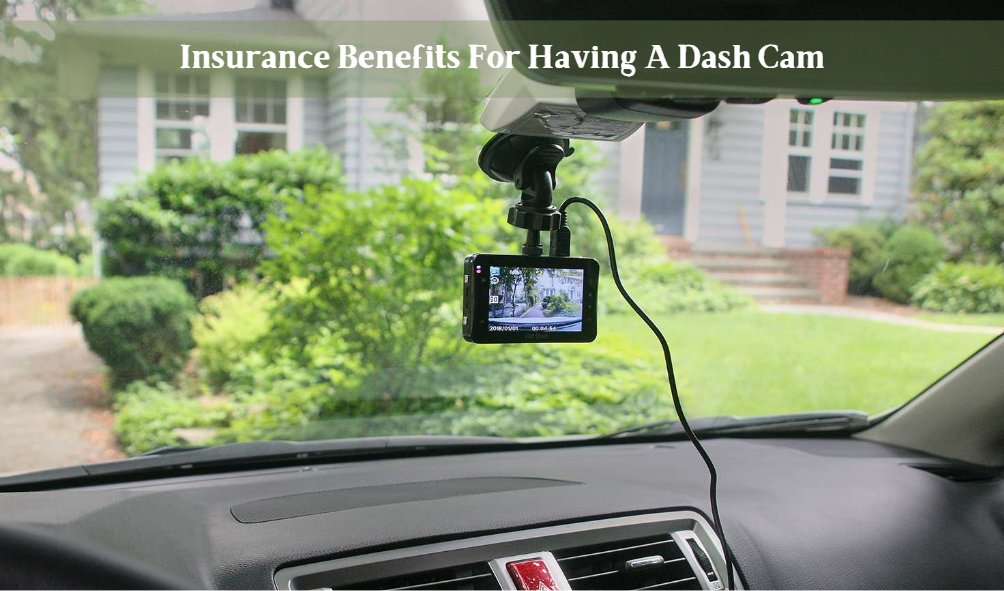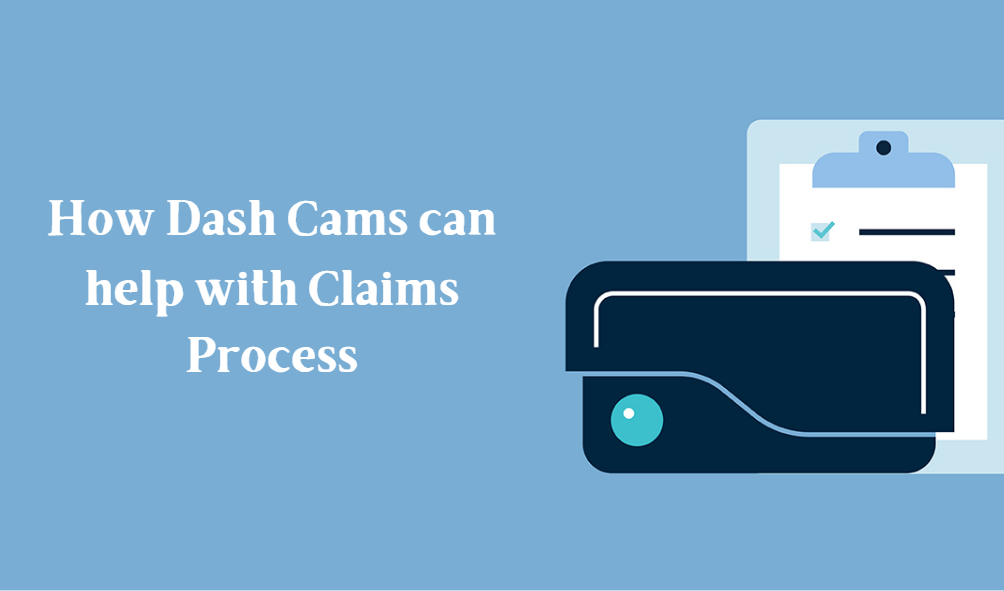Five Insurance Benefits For Having A Dash Cam

Dash cams have become increasingly popular in recent years as they provide valuable evidence in the case of an accident. However, did you know that having a dash cam can also come with insurance benefits?
In this blog, we’ll explore five insurance benefits that come with having a dashcam. From potentially lowering your insurance premium to proving fault in an accident, read on to discover how a dash cam can be a valuable asset for any driver.
Talking About Dash Cams
Dash cams, also known as dashboard cameras, are video recording devices that are installed in vehicles to capture footage of the road ahead and, in some cases, the interior of the car. They are typically mounted on the windshield or dashboard and are powered by the car’s electrical system.
Dash cams can record footage continuously while the vehicle is in motion or only when triggered by an event such as a sudden stop, impact, or movement in the car’s vicinity. The footage can be stored on a memory card or, in some cases, transmitted wirelessly to a cloud storage service.
Types
There are several types of dash cams available on the market. Some of the common types are:
- Wireless Dash Cams: The wireless dash cams use a Wi-Fi or Bluetooth connection to transmit footage to a mobile device or a cloud storage service. They offer the convenience of wireless connectivity and can be useful when wired connections are impractical.
- Front Dash Cams: These dash cams are mounted on the front windshield and are designed to capture footage of the road ahead. They are the most basic type of dash cams and are widely used by individual drivers.
- Rear Dash Cams: These dash cams are mounted on the rear windshield and are designed to capture footage of the road behind the vehicle. They are usually paired with front dash cams to provide a complete view of the vehicle’s surroundings.
- 4K Dash Cams: These dash cams are equipped with high-resolution cameras that can record footage in 4K resolution. They have better image quality than other cameras and are perfect for drivers who want to record clear, detailed footage of their trips.
- Cloud Dash Cams: These dash cams are connected to a cloud storage service and can upload footage in real-time. They offer the advantage of remote access to footage and can be useful in cases of theft or vandalism.
- Fleet Dash Cams: These dash cams are designed for commercial fleets and can be used to monitor driver behavior, ensure compliance with regulations, and improve safety.
Pros of Dash Cams
- Provides evidence in case of accidents or disputes
- Helps to prevent insurance fraud
- Can help lower insurance premiums
- Improves driver safety and behavior
- Offers peace of mind while driving
- Can capture unique and interesting footage while driving
- Some models offer advanced features like GPS, night vision, and advanced driver assistance systems
Cons of Dash Cams
- Can be expensive, especially for high-end models with advanced features
- May require professional installation, which can add to the cost
- Some models can be bulky and obstructive
- Can be a distraction for some drivers if not installed properly
- Recording footage of other people without their consent can be illegal in some places
- Can be a target for theft if left visible in the car
Understanding the Insurance Benefits of Dash Cams
Dash cams can provide several insurance benefits that are worth exploring in more detail:
- Lower Insurance Premiums:
Insurance companies figure out how much a driver has to pay in premiums by looking at their driving record, their age, and the kind of car they drive. Some insurance companies offer discounts to drivers who use dash cams, as they are considered to be less risky drivers.
The footage captured by the dashcam can also help insurers settle claims quickly and efficiently, which can reduce costs. The potential savings on insurance premiums can offset the cost of purchasing a dashcam, making it a worthwhile investment.
- Faster Claims Processing:
In the event of an accident, the footage captured by a dashcam can be used as evidence to support a claim. This can help expedite the claims process and reduce disputes between parties involved in the accident.
Insurance adjusters can review the footage to determine fault and assess damages, which can speed up the claims process and provide a faster resolution for policyholders. This can also help to reduce costs for insurance companies, as they can avoid lengthy investigations and legal battles.
- Reduced Insurance Fraud:
Insurance fraud is a significant problem that costs insurance companies billions of dollars each year. Fraudsters can stage accidents or make false claims, which can result in higher premiums for policyholders.
Dash cams can help deter insurance fraud, as they can capture footage of accidents and help identify fraudsters. In some cases, the footage can also be used to prosecute fraudsters, which can further reduce fraudulent activities.
- Improved Driver Safety:
Dash cams can also help to improve driver safety and behavior. Drivers who know that their actions are being recorded are more likely to follow traffic laws and drive responsibly. This can reduce the likelihood of accidents and result in fewer claims for insurance companies.
Some dash cams also have features like lane departure warning, collision warning, and driver fatigue detection, which can make driving even safer.
- Unique Footage:
Finally, dash cams can capture unique and interesting footage while driving. This can be entertaining and even educational, as drivers can review the footage to improve their driving skills or share the footage on social media. While this benefit may not be directly related to insurance, it can be a fun aspect of using a dash cam.
How Dash Cams Can Help With the Claim Process

Dash cams can be extremely helpful when it comes to the claims process. Here are some of the ways that dash cams can assist with claims:
- Provide Evidence: One of the most significant benefits of dash cams is that they can provide valuable evidence in the event of an accident. The dashcam’s footage can demonstrate what transpired before the collision, who was at fault, and the extent of the damage. This can be especially helpful if there are no witnesses to the accident or if the other driver disputes what happened.
- Reduce Disputes: Because dashcams provide clear, unbiased footage of what happened, they can help reduce disputes between drivers and insurance companies. The footage can help to eliminate any confusion or differing accounts of what happened, making it easier to determine who is at fault and what the next steps should be.
- Expedite Claims Processing: With dashcam footage available, the claims process can be expedited. Insurance adjusters can review the footage to determine fault and assess damages, which can speed up the claims process and provide a faster resolution for policyholders.
- Prevent Fraud: Dash cams can also help to prevent fraud by capturing footage of accidents and identifying fraudsters. Fraudulent insurance claims can cause policyholders’ premiums to go up, so insurance companies may use dashcam footage to stop fraudulent claims.
Conclusion: The Future of Dash Cams in the Insurance Industry
Dash cams are becoming increasingly popular among drivers who want to protect themselves on the road and save money on their insurance premiums. As we have seen, dashcams offer several benefits, including improved safety, faster claim processing, and reduced insurance fraud.
In the future, more and more insurance companies will likely begin to offer discounts and incentives for drivers who use dash cams. As the technology continues to improve, dash cams may become even more advanced, with features like artificial intelligence and real-time alerts that can help drivers avoid accidents and reduce their risk of filing insurance claims.
At the same time, the use of dashcams may also raise some privacy concerns. Some people may feel uncomfortable with the idea of having their driving behavior constantly recorded and monitored. Insurance companies will need to find a balance between using dashcams to improve safety and efficiency while also respecting the privacy of their policyholders.
Overall, the future of dash cams in the insurance industry looks bright. As more drivers recognize the benefits of using dash cams, we can expect to see a shift toward safer and more efficient driving practices, ultimately benefiting everyone on the road.






